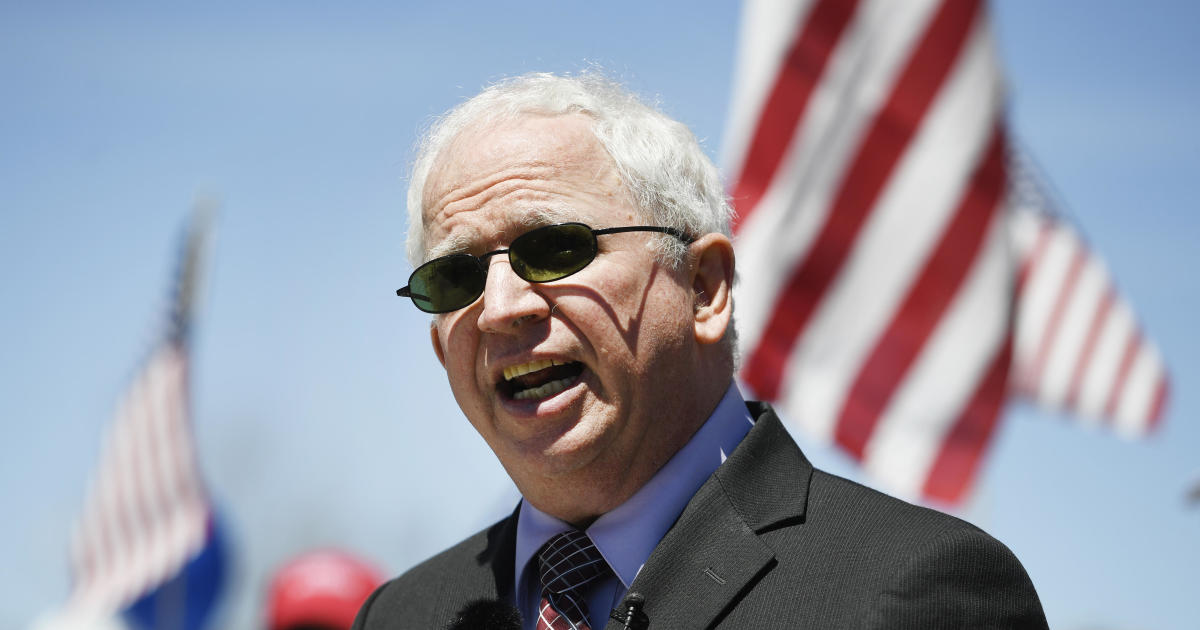Washington – A conservative attorney tied to former President Donald Trump is claiming FBI agents seized his cellphone outside of a New Mexico restaurant last week pursuant to a search warrant, according to a lawsuit he filed Monday.
John Eastman – known for allegedly devising a scheme to keep Trump in office by pressuring former Vice President Mike Pence – said in Monday’s court filing that the federal agents approached him with the warrant for any electronic and digital devices on his person. According to a purported copy of the search warrant that accompanied Eastman’s lawsuit, law enforcement was then to transport the devices to Washington, D.C., or a Justice Department forensic lab in Northern Virginia.
Eastman alleged the agents “frisked” him before he was “forced to provide biometric data” to open his iPhone 12 Pro, which contained access to emails that are currently at issue in another lawsuit he filed against the House Select Committee investigating the January 6 Capitol attack. He filed Monday’s lawsuit to force the Justice Department to return his phone.
The warrant was authorized by a federal magistrate judge in New Mexico on June 17, according to the copy filed Monday.
John Eastman speaks at a news conference outside of the University of Colorado Boulder on Thursday, April 29, 2021.
Andy Cross/MediaNews Group/The Denver Post via Getty Images
Eastman spoke at Trump’s “Save America” rally at the Ellipse on the morning of Jan. 6 ahead of the riot. The House Jan. 6 committee has revealed that he was among those who pushed the former president and Pence to block the certification of President Biden’s election victory and Eastman is also accused of advocating for the use of alternate electors. The committee investigating the attack subpoenaed him to testify about the events leading up to the Jan. 6 riot and declined to turn over documents and during his deposition asserted his Fifth Amendment right 146 times.
The panel is still working to obtain hundreds of pages of documents and emails after it issued a subpoena to Chapman University, where Eastman was a law professor and former dean of the law school. The California judge presiding over that matter ruled in March that Trump “more likely than not” illegally tried to impede official congressional proceedings on January 6.
“Dr. Eastman and President Trump launched a campaign to overturn a democratic election, an action unprecedented in American history,” U.S. District Court Judge David Carter wrote.
In his complaint filed Monday, Eastman said the warrant to seize his phone was overbroad and a violation of his constitutional rights.
“The warrant does not even mention, much less describe with specificity, any particular crime for which evidence sought by the warrant might be relevant, or include any information linking movant’s devices or the information contained therein to any such crime,” he said in the lawsuit/.
He added later, “The warrant gives no indication that evidence of any wrongdoing would be found on a cell phone or other electronic device.”
Eastman alleges he initially asked for the warrant “at the outset” of the search and seizure, but the federal agents initially refused.
The Justice Department’s Office of Inspector General, on whose behalf Eastman alleges the federal agents said they were acting, declined to comment.
The warrant for Eastman’s phone appeared to be served on the same day law enforcement authorities searched the home of former Trump-era Justice Department official Jeffrey Clark. Clark is believed to be central to the efforts of Trump and his allies to delay the certification of the 2020 election results and promote baseless claims that Mr. Biden had not legitimately won the election.
Last week, CBS News learned there was law enforcement activity at locations connected to people who may have participated in efforts to use “invalid electors” to reverse President Joe Biden’s 2020 victory. Federal agents issued subpoenas to individuals connected with the alleged scheme in Georgia, Virginia, and Arizona.
